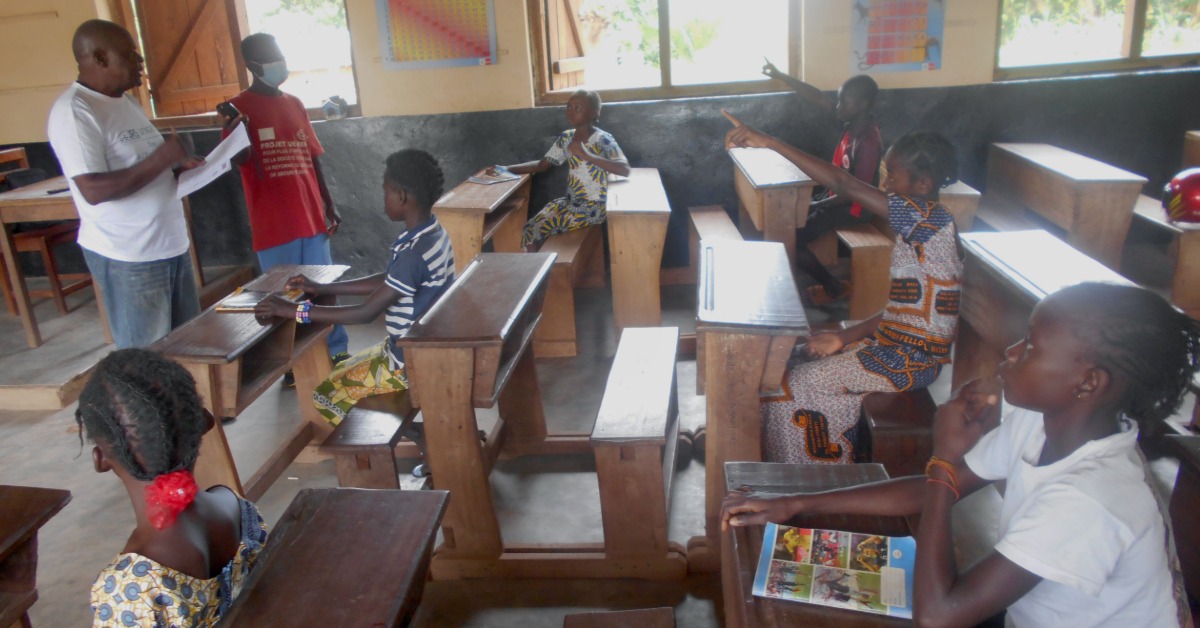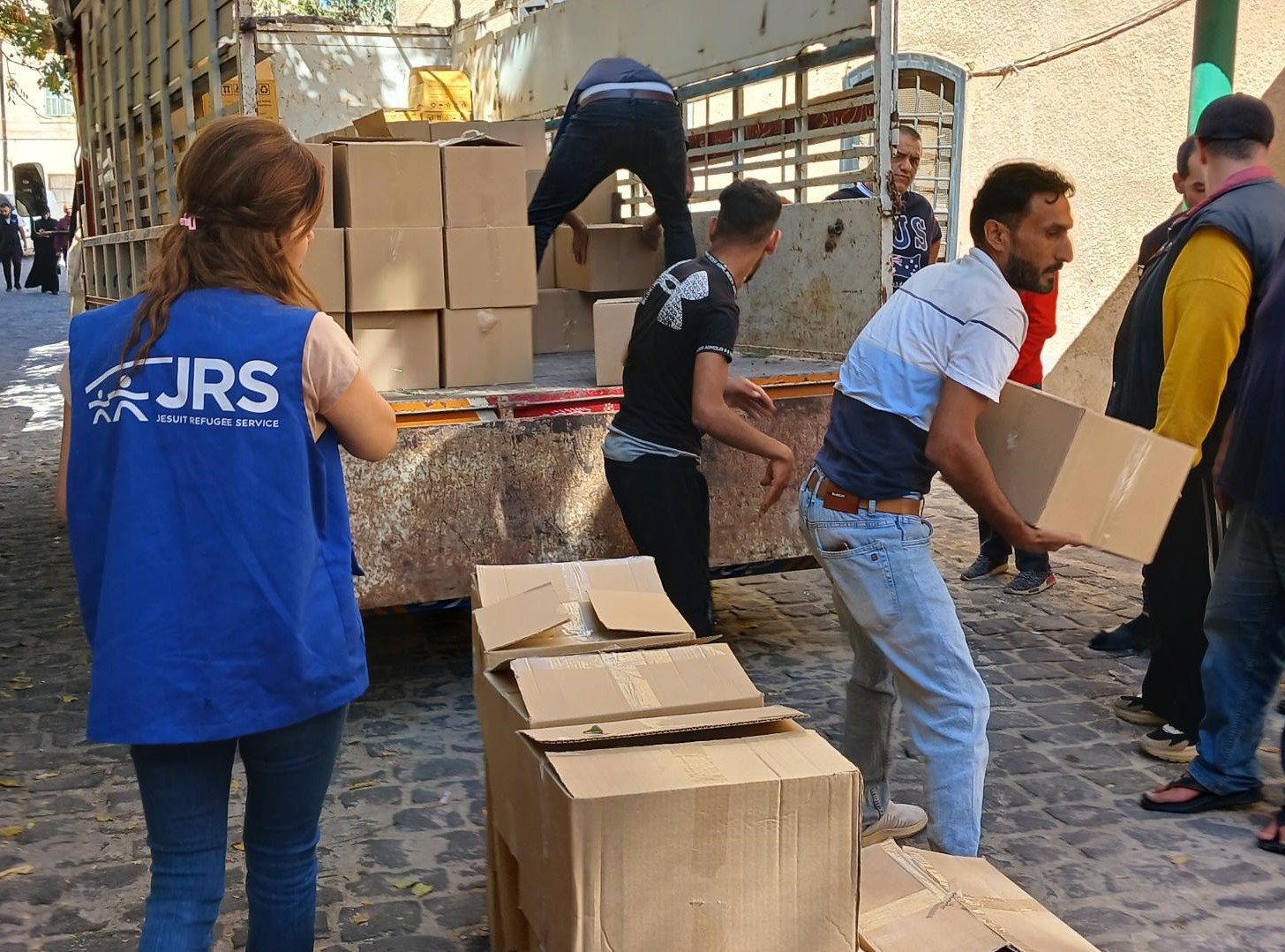West Africa: Access to Education in a Global Pandemic
06 August 2020

As social distancing measures are enforced to prevent further outbreaks of COVID-19, access to quality and consistent education can be a challenge. Education Cannot Wait (ECW) — a global fund committed to repositioning education on the global humanitarian agenda — worked with JRS to adjust our education programs in Eastern Chad and Central African Republic to continue delivering valuable schooling to displaced students.
In Lobaye, Ombella Mpoko, and Ouaka prefectures in Central African Republic, students have been able to attend school again after months of lockdown. JRS helped facilitate awareness activities related to hygiene and allocated essential materials such as hand sanitizers, face masks, and soap to educators.
A preschool served in Bambari established social distancing practices and a consistent routine for handwashing. JRS developed courses at a primary school available through a community radio in the area. We utilize all resources possible to ensure students are able to learn even in unforeseeable circumstances. JRS is also translating child protection awareness messages into the local language to provide psychosocial support.

In neighboring Chad, where JRS projects are also supported by the US Department of State’s Bureau of Population, Refugees, and Migration (BPRM), JRS is not only distributing hygiene kits in classrooms, but also implementing water points and latrines. Schools in Eastern Chad are facilitating a “cleanest school contest” in hopes of maintaining and encouraging good hygiene and sanitation practices among students. Teachers are the key drivers in carrying out and sustaining these efforts.
It is imperative that we remain resilient, adaptable, and hopeful during such circumstances.


